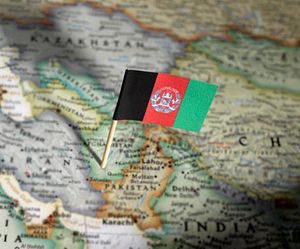With NATO troops set to exit by the end of 2014, the focus in Afghanistan has shifted towards ensuring peace, stability and security. As the presence of Western forces recedes, India and Pakistan have renewed their commitments to provide aid and assistance to Afghanistan. Afghanistan is central to the security and economy of the wider region, and India and Pakistan stand to play an increasing role in the country’s transition to self-governance.
India has pledged $2 billion in aid – the largest package it has offered any country – for a number of post-conflict nation-building efforts. So far, India has spent half of that total on projects that include a highway to Iran, transmission lines to Kabul and the construction of a new marble parliament building. The two countries have long enjoyed close political ties and the aid relationship was formalized in 2011 with the signing of a Strategic Partnership Agreement (SPA), which commits India to a number of long-term political, security and development programs.
The Afghan government is one of the world’s most corrupt. In its annual Corruption Perception Index, Transparency International recently ranked Afghanistan joint 175th – the lowest position, alongside North Korea and Somalia. Despite this poor fiscal record, India has transferred aid monies directly to the government in Kabul and has offered these funds with no strings attached. As one Indian official said anonymously, “we are not going to link development to political demands… we have experienced the futility of doing this ourselves.”
Ostensibly, these unconditional direct transfers are made in good faith. As Amar Sinha, the Indian ambassador to Kabul, said to Reuters, “We have no reason to believe that the money will be wasted.” But the funding arrangements serve a broader political strategy: Karzai has grown increasingly resentful of the directives he has received from Western donors, and the refusal to impose terms on its aid allows India to set itself apart.
Many view the news of India and Pakistan’s engagement in Afghanistan with suspicion. Allegations that Afghanistan is the site of an intensifying Indo-Pakistan proxy war are common. But the two have more prosaic and immediate concerns: Afghanistan is vital to the security and economic prospects of the region, and India has consistently pursued its interests through cultural and soft diplomacy. By signing the SPA, offering aid and providing thousands of scholarships to Afghan students, India has curried tremendous favor with Karzai and his administration. And this conciliatory strategy has paid off. In November 2011 a consortium of Indian public and private companies won a bid to mine in three states in Afghanistan – a lucrative venture with an estimated investment cost of $10.8 billion.
As the international military presence winds down, the dynamics of the Indo-Af-Pak triangle will certainly change. India has trained 650 Afghan officers and members of its special forces, but has equivocated on Afghanistan’s request for arms. In a “wish list” submitted to the Indian government during a visit in 2013, Karzai requested tanks, field guns and aircrafts. But Delhi is aware of the fears in some quarters of Pakistan over India’s increasing involvement in Afghanistan, and Karzai’s requests have not yet been met. India’s precarious balancing exercise – negotiating its interests in Afghanistan with the sensitivities of Pakistan – has been made easier by the arrival of Nawaz Sharif, who after coming to power last year declared his intentions to improve India-Pakistan ties.
When Leon Panetta, then the U.S. Defense Secretary, visited India in 2012, he encouraged Indian leaders to assume a greater role in Afghanistan. These prompts were hardly necessary. India has cultivated strong ties with Afghanistan for decades over key political and economic issues. It is crucial for India that the clock of progress is not turned back in Afghanistan, and it is for this reason that India has maintained “high level political engagement and broad-based development assistance [across] a wide range of sectors.” After the U.S., UK, Japan and Germany, India is the largest bilateral donor to Afghanistan; and this constructive relationship is set to continue well beyond the 2014-15 transitional period.

































